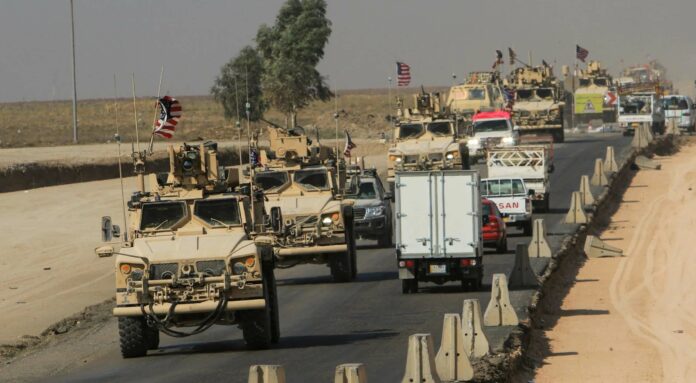Mustafa Al-Saray / Director of the Political Research and Studies Department at Al-Bayan Center for Planning and Studies
The withdrawal of Coalition Forces, notably the U.S. troops, from Iraqi territory has emerged as a significant issue that has recently taken precedence in the realm of domestic political concerns. The issue of the withdrawal of international coalition forces has been exerting pressure on the Iraqi government since the assassination of the Iranian Revolutionary Guard commander, General Qasem Soleimani, and the deputy head of the Iraqi Popular Mobilization Forces, Abu Mahdi al-Muhandis, by a U.S. airstrike in 2020. The Iraqi demands have not been satisfied with political and diplomatic means to resolve the matter. Iraqi resistance factions have adopted military operations targeting the bases of the Coalition Forces in Baghdad, Erbil, and the Anbar desert, which has agitated the United States and the nations participating in the coalition regarding the Iraqi government’s approach to this issue. Frequently, the relationship has escalated into a state of ongoing conflict between the factions and Coalition Forces, culminating in the exchange of precisely targeted strategic strikes between both parties. The most recent of these was an airstrike on the 12th Brigade of the Popular Mobilization Forces, resulting in the death of “Mushtaq Talib al-Saedi,” known as “Abu Taqwa,” a leader in the Al-Nujaba Movement. In this context, the announcement by Iraqi Prime Minister Mohammed Shia’ al-Sudani on January 5, 2024, that the government is preparing to form a bilateral committee to schedule the final withdrawal of the Coalition Forces against ISIS from Iraq, affirmed that there would be no compromise on anything that would undermine national sovereignty.
Strategic Analysis:
Iraqi voices have risen against the presence of the international coalition during a very heated period in the Middle East due to the repercussions of the war in Gaza and the gravity of the crimes committed by the Zionist entity against the Palestinians. This outcry is also in light of the announcement of a general mobilization by the Iraqi resistance factions in coordination with the Lebanese and Yemeni resistance entities to target U.S. interests and bases in the region, especially Iraq and Syria, which are considered soft spots for the international coalition.
Despite the Iraqi Parliament’s vote in 2020 to end the U.S. military presence, and the government’s statement in mid-August 2023, through Prime Minister Mohammed Shia’ Al-Sudani, that Iraq no longer needs coalition forces on its soil, the recent calls for the departure of U.S. forces come in a different regional context. They arise in the context of escalating military clashes between U.S. forces in the region and resistance factions against the backdrop of the war in Gaza. Military bases hosting international coalition forces in Iraq were subjected to dozens of attacks by drones and missiles in response to Washington’s support for Israel in its war on the Gaza Strip.











